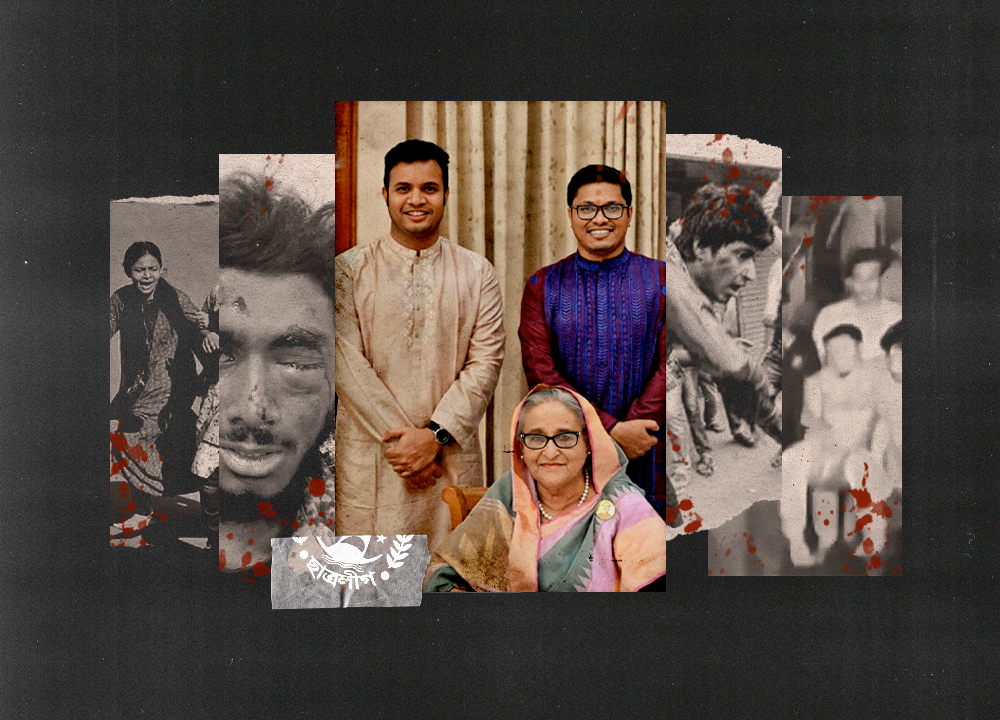Let a future Bangladesh be free of Chhatra League
Outlawing the militia known as the Chhatra League is essential for the establishment of a democratic Bangladesh

Thanks to its uninterrupted 16-year rule, the Awami League has managed to dominate a large segment of Bangladesh’s student community. The youth — drawn by the temptations of an effortless bright career, raw power, and a life of comfort and luxury — flock to the Chhatra League (BCL), the ruling Awami League’s student wing, like moths to a flame. What other future lies ahead for them than becoming a BCL cadre?
For a nascent member, it starts with rallies, then a showdown, until he rises through the ranks, metamorphosing into the boro bhai arriving at Gonobhaban in a plush car. Once he manages to kneel before the queen, he never has to look back.
The Awami League enticed them with the promise of a godlike ability to flaunt the law of the land, and they lined up to seize the golden opportunity. Thus, the Awami militia force was formed. Sickles and machetes, helmets and heavy guns — this force wants for naught.
The positive and productive activities of student organisations the world over make the contrast with Chhatra League all the starker. Murder, rape, theft, robbery, extortion, illegally securing public contracts — there is almost no crime defined by penal code with which Chhatra League was not implicated.
A report by The Daily Star may help shed light on how this organisation has not only survived but thrived despite its litany of crimes committed in broad daylight.
Titled “The greater the crime, the higher the rank in the Chhatra League,” the report draws on historical data to demonstrate how the government would make a show of expelling the culprits from their posts, only to shower them with rewards behind the scenes once the public anger subsided. Bigger posts, richer rewards, better opportunities — that’s how the leaders and boro bhais helped the cadres navigate through a stormy few days towards safe harbour.
According to an October 2019 report published by the Daily Jugantor, 24 students were killed by the Chhatra League in the ten years from 2009, solely on university campuses.
It is impossible to imagine what the numbers would be if one conducted a thorough study to count the number of killings done by this organisation’s members in each district, each upazila, each union council.
From the anti-quota protests to the movement for safer roads, there have been numerous uprisings where students have peacefully raised fair demands in the last 16 years. In none of them has there been an instance where BCL cadres have not beaten, maimed, and killed ordinary students with the police standing alongside, if not actively protecting them.
It is as if the police and Chhatra League are two sides of the same coin. Their goals and objectives are the same. Instead of being used for state security in service of the people, law enforcement forces have become the armed organs of the Awami machinery. Following suit, the Chhatra League has transformed from a student organisation into a terrorist organisation — an iron fist establishing a reign of terror across the country.
When the law enforcement agencies are working as the Awami League’s armed protectors, why was there a need for the Chhatra League armed militia? Why turn a student organisation into a militia when there were already the police, the Rapid Action Battalion, the Directorate General of Forces Intelligence, and the military?
When an authoritarian dictatorship prevails, there is no distinction between political parties and state forces. Political militias and state forces work hand in glove as defenders of the autocracy.
Considering the history of authoritarianism, the present political context, and the future of Bangladesh, the Chhatra League militia is more dangerous than any state force. The organisation would not have survived, let alone thrived in the shadows, in open daylight, if the courts could conduct judicial proceedings independently.
It is almost certain that BCL will not face any existential crises as long as this regime exists. If there ever is a change of government, a government of, for, and by the people must ensure that every single member of this evil organisation is judged for what they have done.
This student organisation, which haunts the daily lives of ordinary students and common people and brings untold horror upon them, must be brought to justice. The hope is that the day when this radical organisation is outlawed will dawn on Bangladesh soon.●
Suraiya Sultana, Special Correspondent, Netra News.